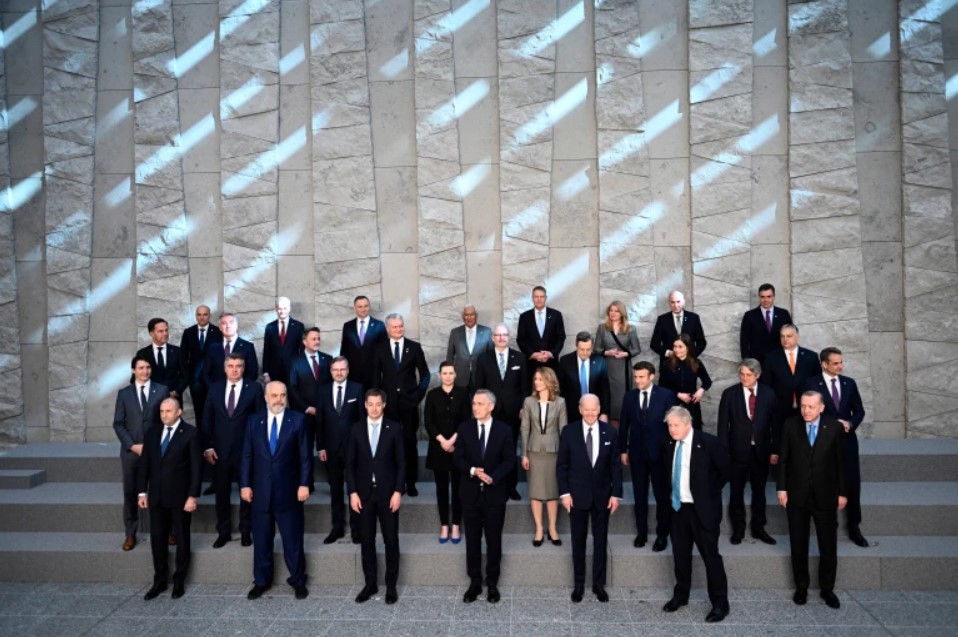Today marks one month since Russia launched its invasion of Ukraine; an emergency NATO summit is being held in Brussels with the leaders of all member states to discuss their response to the Russian attack.
Secretary-General Jens Stoltenberg opened procedures stating that “We are united in condemning the Kremlin’s unprovoked aggression and in our support for Ukraine’s sovereignty and territorial integrity.”
Chemical contamination
A major concern is Russia’s potential use of chemical weapons, which could have widespread effects on Ukraine’s surrounding territories, possibly affecting NATO countries. “We are concerned about the use of chemical or biological weapons,” Stoltenberg said, adding that NATO would call on Russia’s President Vladimir Putin to stop his “nuclear sabre-rattling”.
NATO countries are set on providing Ukraine with protective equipment against the potential use of chemical and nuclear weapons in the country. It will be the first time for the alliance to send such supplies to counter weapons of mass destruction to a partner country.
The use of chemical weapons has been considered a ‘red line’ by US leaders; UK Prime Minister Boris Johnson stated that “Putin has already crossed the red line into barbarism."
Related News
- Up to 15,000 Russian soldiers dead in Ukraine, NATO says
- Biden in Brussels: Presidential visit costs over €2,000 per minute
- EU delays decisions on support to Ukraine fighting for its existence
Also high among NATO concerns are potential Russian cyber-attacks on any of the member states and fighting spilling over into allied nations. Drones have already strayed across NATO borders, forcing the alliance to decide on a response.
New sanctions
Joe Biden, who is currently in Brussels for several summits, will announce more sanctions for Russia, particularly targeting Russia’s energy sector as well as sanctions on Russian elites. The sanctions are aimed to further tighten the existing sanctions.
Biden will also discuss the longer-term adjustments to NATO, contingencies in the case nuclear weapons are used, and “joint action” on enhancing energy security in Europe, which still mainly relies on Russian gas.
The UK government has also imposed new sanctions on 65 more Russian individuals and organisations, including banks, defence companies and oligarchs.
Gas in rubles
Meanwhile in Russia, Putin demanded on Wednesday that ‘unfriendly’ countries – which includes Belgium – pay for imported Russian gas in rubles, turning the West’s sanctions on themselves.
While the Russian currency took an extreme hit after western sanctions were imposed on Russia, Putin’s demand that gas payments be made in rubles prompted an overnight boost for the weakened currency.
Zelenskyy waits
Ukrainian President Volodymyr Zelenskyy said the outcome of the NATO summit will show “who is a friend”, as he states that all politicians must support freedom and the struggle for life. “We are waiting for meaningful steps. From NATO, the EU and the G7.”
Zelenskyy has meanwhile called for worldwide protests in an impassioned plea, urging citizens around the world to stand with Ukraine and defend democracy and freedom.
The Ukrainian President addressed the world in English in the empty streets of the capital city of Kyiv, asking for help and support for his nation’s survival.

